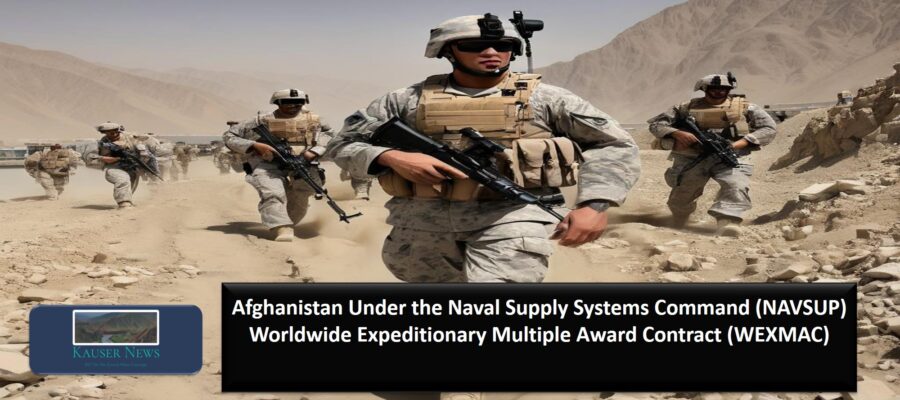WEXMAC 2.0 is designed to support military operations across the globe by providing a range of services and supplies, vital for setting and sustaining theaters of operation. These requirements span humanitarian assistance, disaster relief, contingency operations, logistics, medical services, and more.
Afghanistan’s Inclusion: Why It Matters
The Biden Administration’s withdrawal of military personnel from Afghanistan was a significant policy shift, aimed at ending America’s longest war. Yet, Afghanistan’s inclusion in WEXMAC 2.0 suggests a continued strategic interest in the region, albeit through a different operational framework.


Despite the absence of military personnel, the U.S. continues to have geopolitical and security interests in Afghanistan. These interests include counterterrorism efforts, regional stability, humanitarian assistance, and ensuring that Afghanistan does not again become a haven for terrorist organizations. The WEXMAC 2.0 contract supports these interests by enabling rapid response capabilities and logistical support that can be deployed as needed.
Understanding WEXMAC 2.0
The WEXMAC 2.0 contract supports six phases of military operations, essential for the Geographic Combatant Command’s (GCC) joint operations. It involves theater opening, sustainment, theater distribution, stability operations, and defense support of civil authorities (DSCA). The scope includes services and supplies such as:
- Base Operations and Life Support Services
- Construction and Equipment Services
- Lodging, Conference, and Catering Services
- Medical Services and Supplies
- Force Protection and Communications Services
- Logistics and Transportation Services
- Humanitarian Assistance and Disaster Relief
These provisions ensure that the U.S. can rapidly respond to emergent needs within a 72-hour window, reinforcing its strategic capabilities worldwide, including in regions like Afghanistan.

Contractual Framework and Compliance
Potential contractors must be authorized to operate within specified regions, including Afghanistan, as per regulation 252.225-7042, Authorization to Perform. This stipulation underscores the strategic importance of having vetted and reliable partners capable of delivering on the complex logistical and operational needs outlined in WEXMAC 2.0.
The notice clarifies that this announcement is not a solicitation or request for quotes but a precursor to the formal Request for Proposal (RFP). Contractors will be required to provide comprehensive planning capabilities, ensuring they can deliver actionable plans and integrate these capabilities into broader military and humanitarian operations.
Implications and Strategic Goals
The inclusion of Afghanistan in WEXMAC 2.0 highlights a nuanced approach by the U.S. to maintain a strategic footprint without direct military engagement. It reflects an adaptation to modern warfare and geopolitical strategy, emphasizing flexibility, rapid response, and the ability to support a wide array of operations from humanitarian assistance to potential conflict scenarios.
By leveraging WEXMAC 2.0, the U.S. aims to ensure that it can continue to influence and support stability in Afghanistan and the broader region, aligning with both national security interests and humanitarian commitments.
Afghanistan’s inclusion in the NAVSUP WEXMAC 2.0 contract, despite the absence of U.S. military personnel, demonstrates a strategic evolution in U.S. foreign policy and military logistics. This approach allows for continued engagement and support in critical regions through versatile and responsive logistical frameworks. As the U.S. adapts to new global challenges, contracts like WEXMAC 2.0 will be pivotal in ensuring preparedness and operational efficiency in diverse and unpredictable environments.





